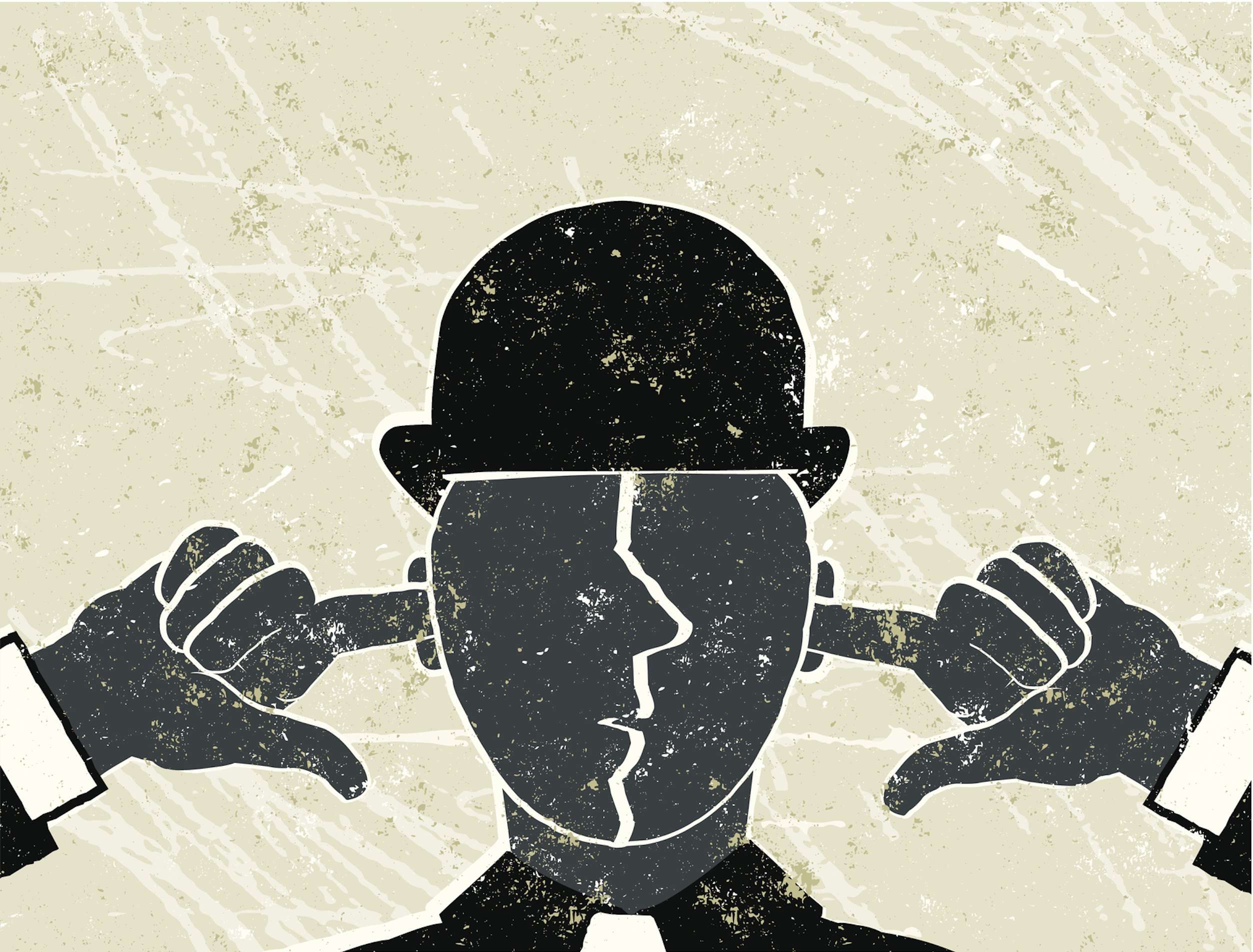In what feels like an increasingly polarised world, trying to convince the “other side” to see things differently often feels futile. Psychology has done a great job outlining some of the reasons why, including showing that, regardless of political leanings, most people are highly motivated to protect their existing views.
However a problem with some of this research is that it is very difficult to concoct opposing real-life arguments of equal validity, so as to make a fair comparison of people’s treatment of arguments they agree and disagree with.
To get around this problem, an elegant new paper in the Journal of Cognitive Psychology has tested people’s ability to assess the logic of formal arguments (syllogisms) structured in the exact same way, but that featured wording that either confirmed or contradicted their existing views on abortion. The results provide a striking demonstration of how our powers of reasoning are corrupted by our prior attitudes.
Vladimíra Čavojová at the Slovak Academy of Sciences and her colleagues recruited 387 participants in Slovakia and Poland, mostly university students. The researchers first assessed the students’ views on abortion (a highly topical and contentious issue in both countries), then they presented them with 36 syllogisms – these are formal logical arguments that come in the form of three statements (see examples, below).
The participants’ challenge was to determine whether the third statement of each syllogism followed logically from the first two, always assuming that those initial two premises were true. This was a test of pure logical reasoning – to succeed at the task, one only needs to assess the logic, putting aside one’s prior knowledge or beliefs (to reinforce that this was a test of logic, the participants were instructed to always treat the first two premises of each syllogism as true).
Crucially, while some of the syllogisms were neutral, others featured a final statement germane to the abortion debate, either on the side of pro-life or pro-choice (but remember this was irrelevant to the logical consistency of the syllogisms).
Čavojová and her team found that the participants’ existing attitudes to abortion interfered with their powers of logical reasoning – the size of this effect was modest but statistically significant.
Mainly the participants had trouble accepting as logical those valid syllogisms that contradicted their existing beliefs, and similarly they found it difficult to reject as illogical those invalid syllogisms that conformed with their beliefs. This seemed to be particularly the case for participants with more pro-life attitudes. What’s more, this “my-side bias” was actually greater among participants with prior experience or training in logic (the researchers aren’t sure why, but perhaps prior training in logic gave participants even greater confidence to accept syllogisms that supported their current views – whatever the reason, it shows again what a challenge it is for people to think objectively).
“Our results show why debates about controversial issues often seem so futile,” the researchers said. “Our values can blind us to acknowledging the same logic in our opponent’s arguments if the values underlying these arguments offend our own.”
This is just the latest study that illustrates the difficulty we have in assessing evidence and arguments objectively. Related research that we’ve covered recently has also shown that: our brains treat opinions we agree with as facts; that many of us over-estimate our knowledge; how we’re biased to see our own theories as accurate; and that when the facts appear to contradict our beliefs, well then we turn to unfalsifiable arguments. These findings and others show that thinking objectively does not come easily to most people.
—My point is valid, yours is not: myside bias in reasoning about abortion
Christian Jarrett (@Psych_Writer) is Editor of BPS Research Digest

Bakkster on October 9th, 2018 at 11:48 UTC »
I'm very curious if formal debate training reduces it eliminates this effect. In debate the position is assigned, meaning success requires the ability to think logically on both sides of a topic. The question is, does that train debaters to be logical in their personal lives despite personal beliefs, or is that capability limited to debate competitions?
michael333 on October 9th, 2018 at 10:16 UTC »
Thomas Kuhn would be pleased.
mvea on October 9th, 2018 at 09:01 UTC »
The title of the post is a copy and paste from the title and third paragraph of the linked academic press release here :
Journal Reference:
Vladimíra Čavojová, Jakub Šrol & Magdalena Adamus (2018)
My point is valid, yours is not: myside bias in reasoning about abortion,
Journal of Cognitive Psychology, 30:7, 656-669,
DOI: 10.1080/20445911.2018.1518961
Link: https://www.tandfonline.com/doi/full/10.1080/20445911.2018.1518961
ABSTRACT
The study explores whether people are more inclined to accept a conclusion that confirms their prior beliefs and reject one they personally object to even when both follow the same logic. Most of the prior research in this area has relied on the informal reasoning paradigm; in this study, however, we applied a formal reasoning paradigm to distinguish between cognitive and motivational mechanisms leading to myside bias in reasoning on value-laden topics (in this case abortions). Slovak and Polish (N = 387) participants indicated their attitudes toward abortion and then evaluated logical syllogisms with neutral, pro-choice, or pro-life content. We analysed whether participants’ prior attitudes influenced their ability to solve these logically identical reasoning tasks and found that prior attitudes were the strongest predictor of myside bias in evaluating both valid and invalid syllogisms, even after controlling for logical validity (the ability to solve neutral syllogisms) and previous experience of logic.